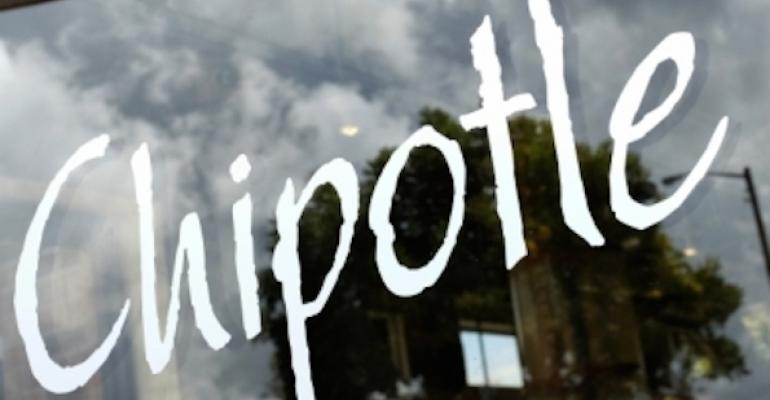 This post is part of the On the Margin blog.
This post is part of the On the Margin blog.
Chipotle Mexican Grill’s food-safety missteps last year are at least partly the fault of the company’s board. Or so says Institutional Shareholder Services, a proxy advisory firm, which recommended that Chipotle shareholders vote against two of the company’s nine shareholders.
ISS recommended against the re-election of Patrick Flynn, who chairs the board’s nominating and governance committee. It also recommended against the re-election of Al Baldocchi, who chairs the board’s audit committee.
According to ISS, the food-safety errors that hit the chain in the second half of last year “exposed a flawed board succession process that has not allowed the directors’ skillsets to keep pace with the company’s size and complexity.”
ISS also said that the audit committee failed to “appropriately implement a risk management oversight process that might have mitigated the severity of these incidents and their fallout on the company’s brand, reputation and stock price.”
Proxy advisory firms analyze corporate governance and make recommendations to shareholders on how to vote in public company board elections. Institutional investors pay close attention to their recommendations.
“We wholly support the reelection of our full slate of directors, including Al Baldocchi and Pat Flynn,” Chipotle spokesman Chris Arnold said in an email comment. “Messrs. Baldocchi and Flynn are long-time directors who have played instrumental roles in shaping Chipotle’s success of over many years, and we would like to see them continue in this important role.”
He also added that another proxy advisory firm, Glass Lewis, recommended shareholders vote for Chipotle’s entire slate of candidates.
The ISS recommendation comes as Chipotle shareholders are calling for a shakeup of the chain’s board of directors. CtW Investment Group, which works with a $250 billion, union-sponsored pension fund, earlier this month recommended against the re-election of Flynn and Darlene Friedman. Both are long-term members of Chipotle’s nominating and corporate governance committee.
Meanwhile, public employee pension funds in New York City and California have recommended that shareholders give themselves access to the director nomination process.
The series of food-safety incidents, starting in August and continuing into November, hammered the chain’s traffic and sales. Same-store sales fell nearly 30 percent in the first quarter, the company said this week.
The company’s stock price has fallen with it. At one point last year it was trading above $750 per share. This week it is down to about $420.
Some shareholders have connected the food-safety scares with corporate governance. “A refreshed, truly diverse board is a critical missing ingredient in Chipotle’s plan to restore trust among investors and customers,” Dieter Waizenegger, executive director at CwT, said in a statement. “Given the pivotal role food integrity plays in Chipotle’s value proposition, oversight failure is one of the company’s most profound risks, and the board’s lack of diversity and introspection beggars relief.”
Chipotle has been the subject of shareholder unrest in the past, much of it over the compensation of its co-CEOs, Monty Moran and Steve Ells. Both were paid well over $28 million last year, but saw their pay more than halved, to just more than $13 million apiece.
Their individual pay nevertheless makes each of them among the restaurant industry’s highest paid CEOs.
The company has opted to change its compensation strategy to tie it to the performance of that stock. The stock has to reach $700 for 30 straight days for the co-CEOs to qualify for stock awards.
Contact Jonathan Maze at [email protected]
Follow him on Twitter: @jonathanmaze
This post has been changed from its original version to reflect the following update:
Update, April 28, 2016: This post has been updated with comments from Chipotle.

